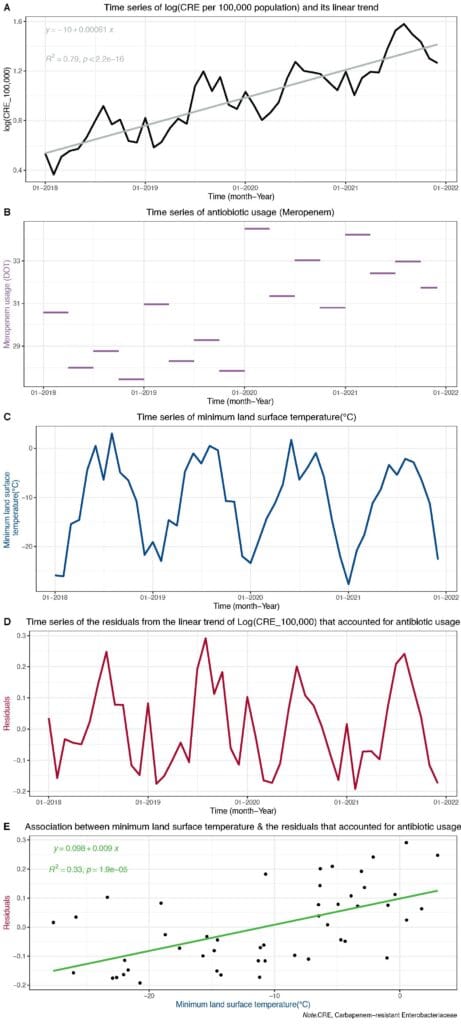Environment/Climate Change
Carbapenem-resistant Enterobacteriaceae infections associated with minimum temperature in South Korea from 2018 to 2021 Jeehyun Kim* Jeehyun Kim Mauricio Santillana
Background: Carbapenem-resistant Enterobacteriaceae (CRE) infections are a significant public health threat with limited treatments and high mortality. While antibiotic usage is a known driver of resistance, environmental factors such as temperature may also contribute to the spread of resistant infections. However, their role remains unclear.
Aim: To assess the association between minimum temperature and CRE infection cases in South Korea, accounting for antibiotic usage.
Methods: This retrospective time-series study analyzed CRE cases from national surveillance data in South Korea between January 2018 and December 2021. Monthly CRE infection cases were expressed as cases per 100,000 population and log-transformed for analysis. Minimum temperature was derived from MODIS satellite’s daily land surface temperature data and summarized monthly. A multiple linear regression model evaluated the association between minimum temperature and residuals of log-transformed monthly CRE cases after accounting for antibiotic usage and overall temporal trend.
Results: A total of 68,747 CRE infection cases were reported, with a predominance among males (N=39,058, 56.8%) and individuals aged 70–79 years (N=19,252, 28.0%). CRE infections peaked seasonally from July to September. Residuals from the model of CRE infections, adjusted for time trends and meropenem usage, were significantly associated with minimum temperature (β = 0.009; 95% CI, 0.005–0.013; P < 0.001).
Conclusions: This study demonstrates a significant association between minimum temperature and unexplained variations in CRE infection cases, suggesting that higher ambient temperatures could contribute to a rise in antibiotic-resistance infections. Further research is needed to examine the long-term impacts of climate trends on resistance patterns.

